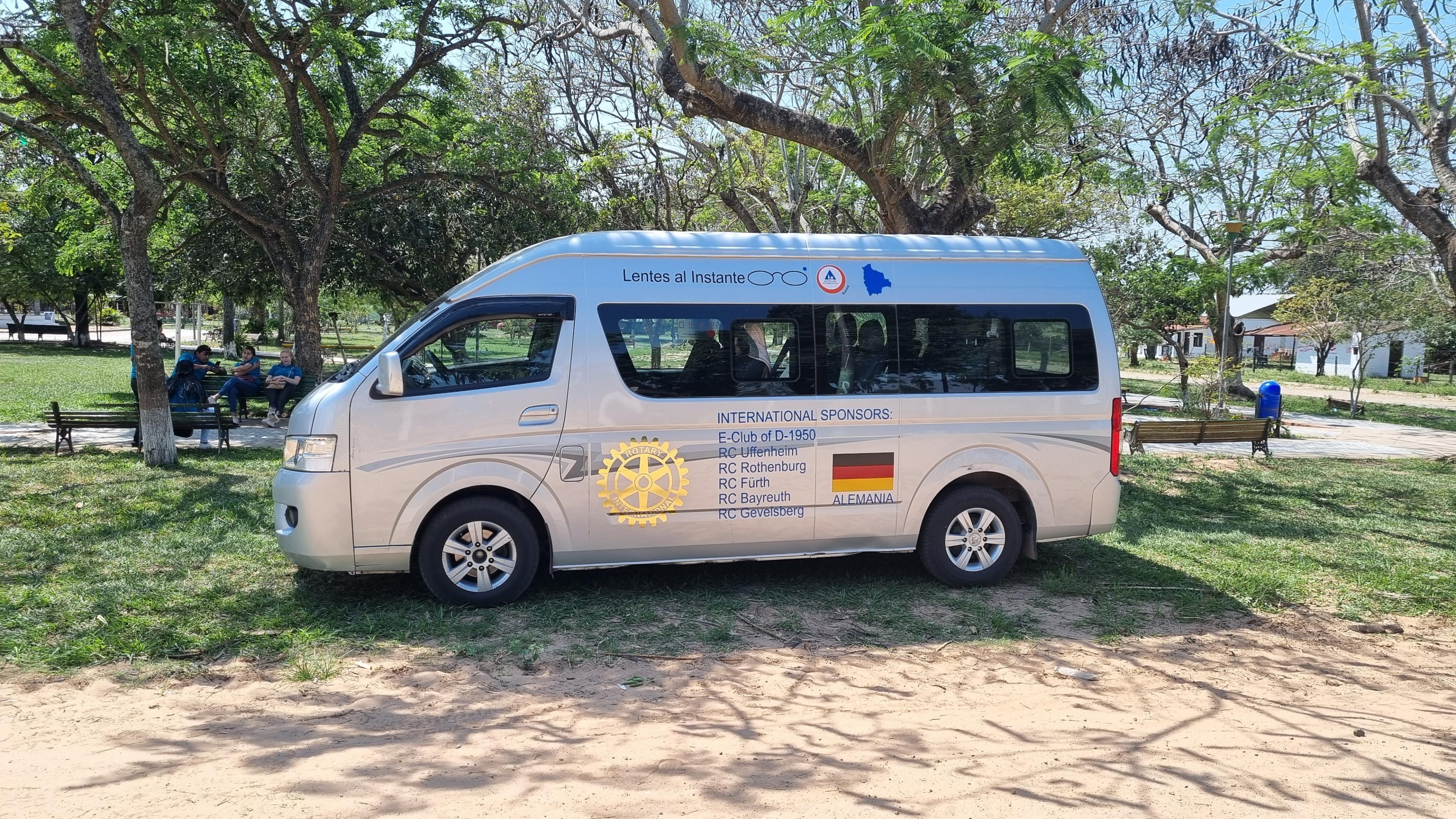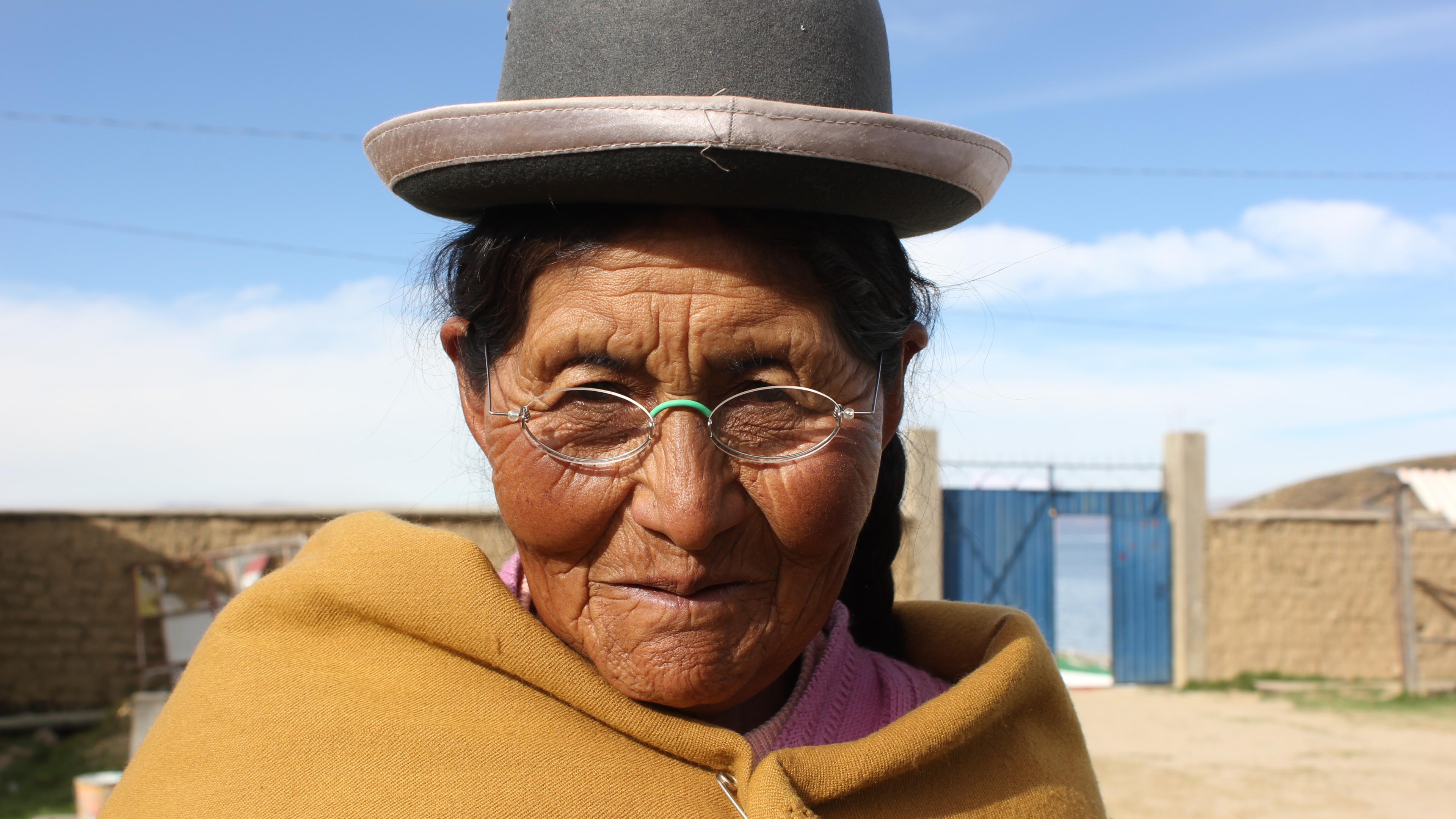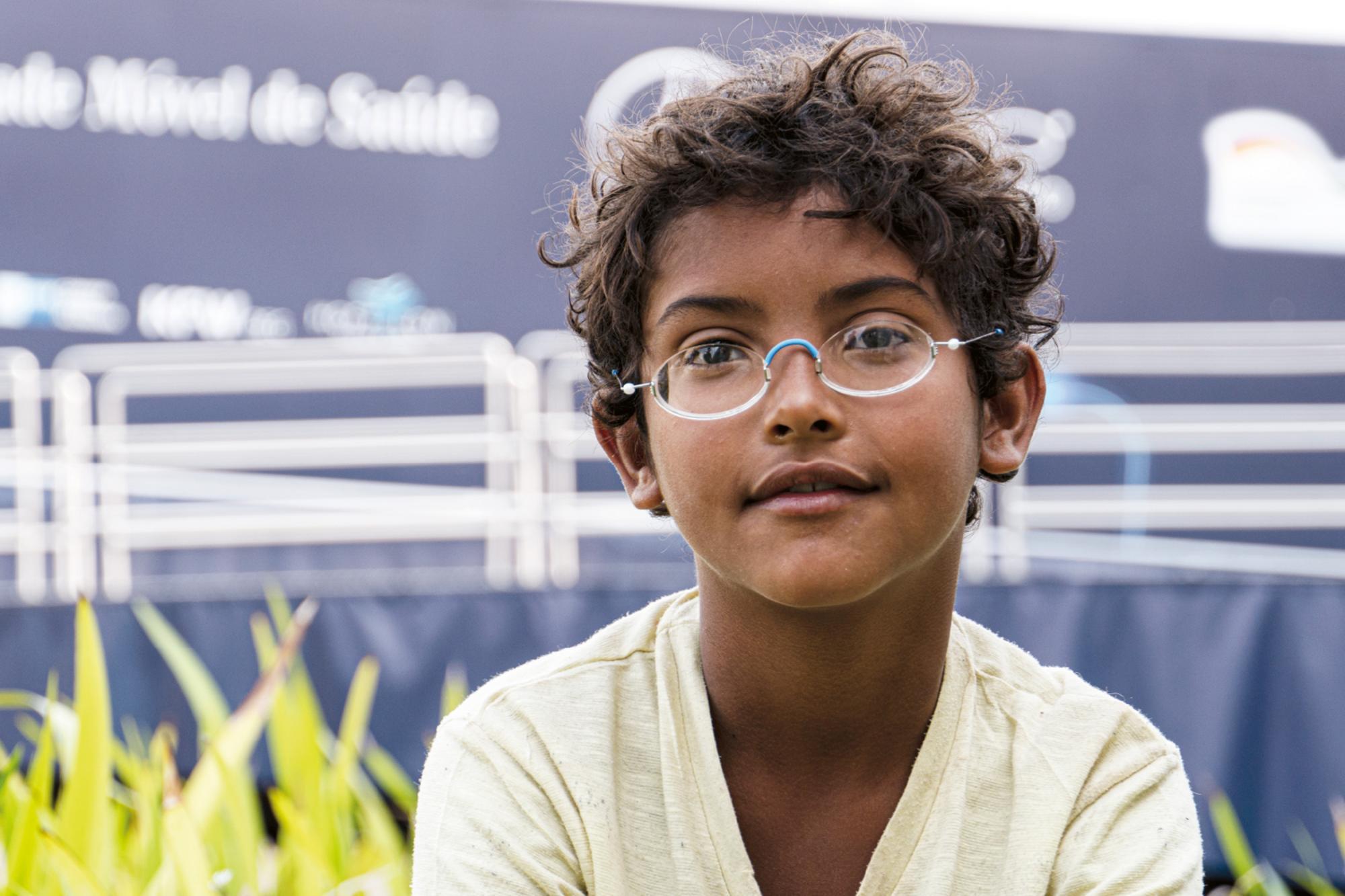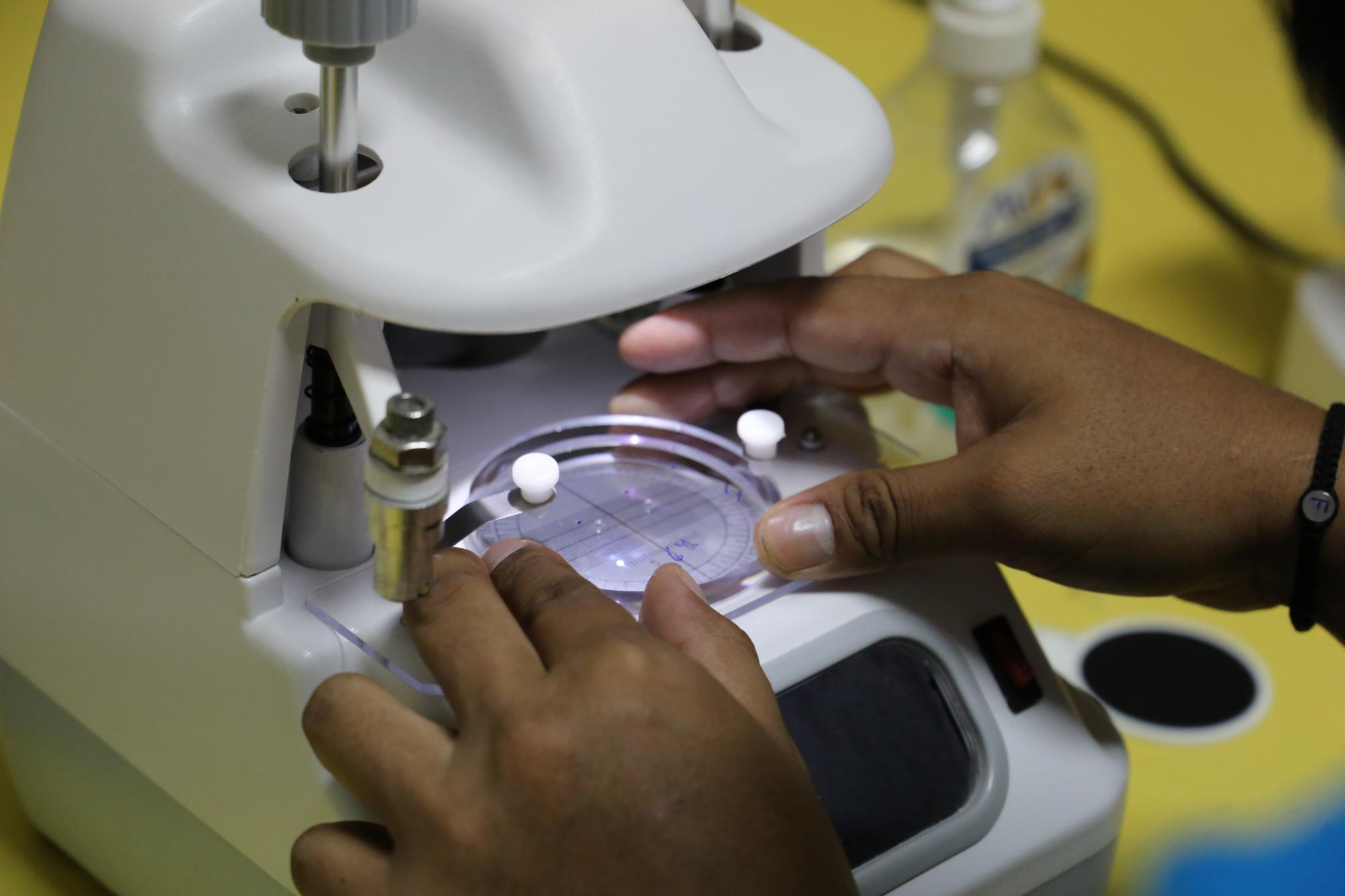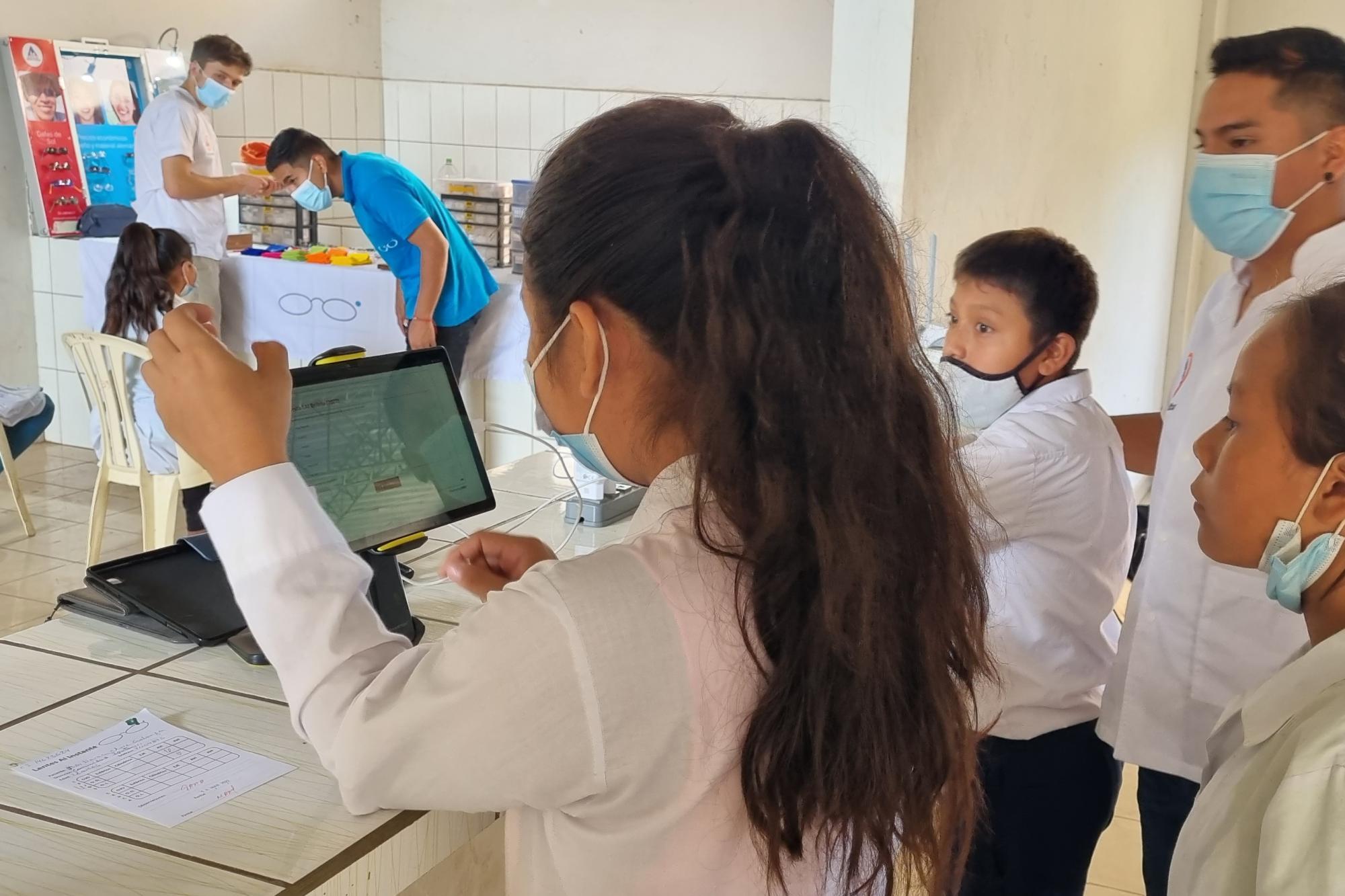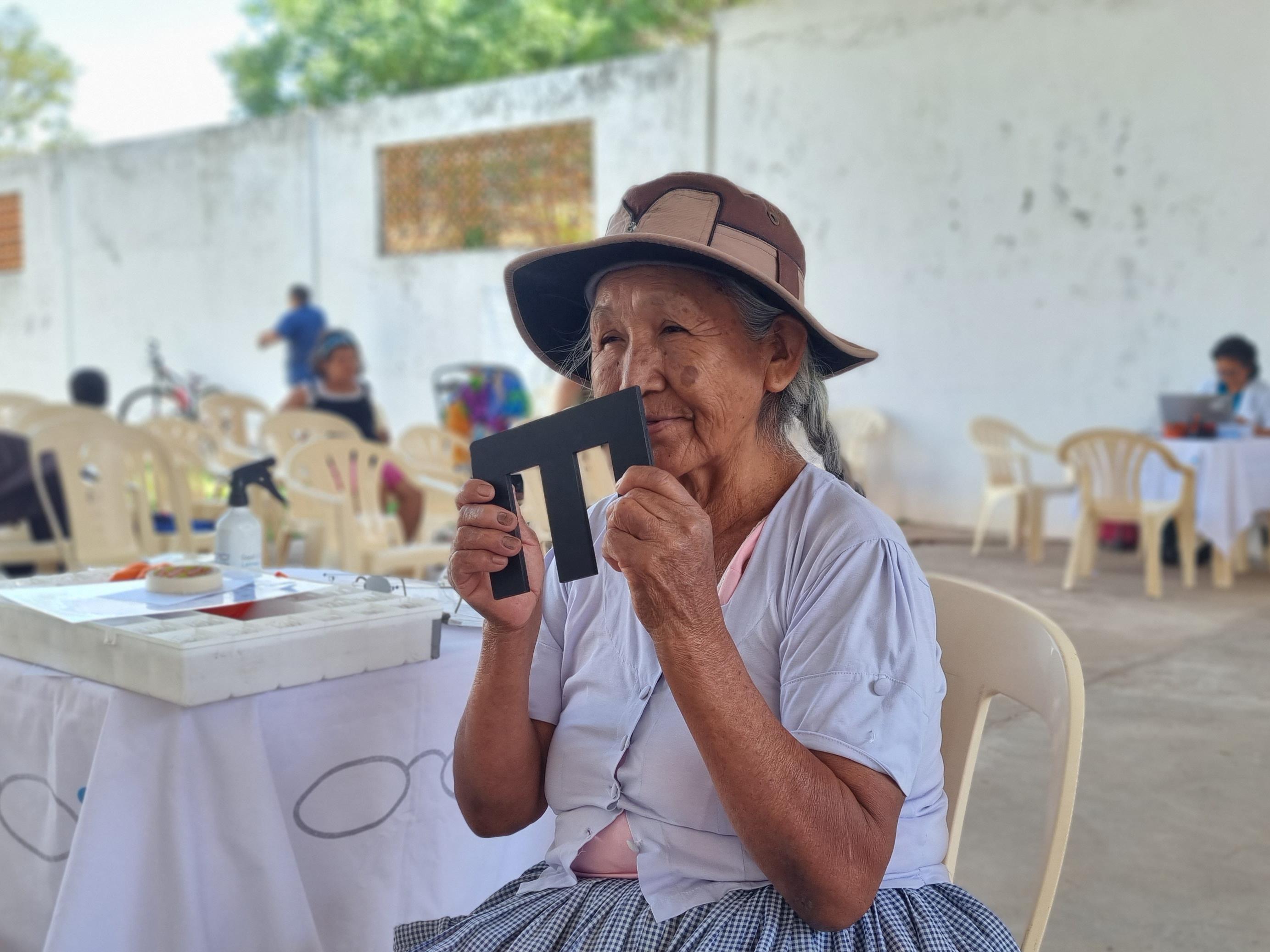
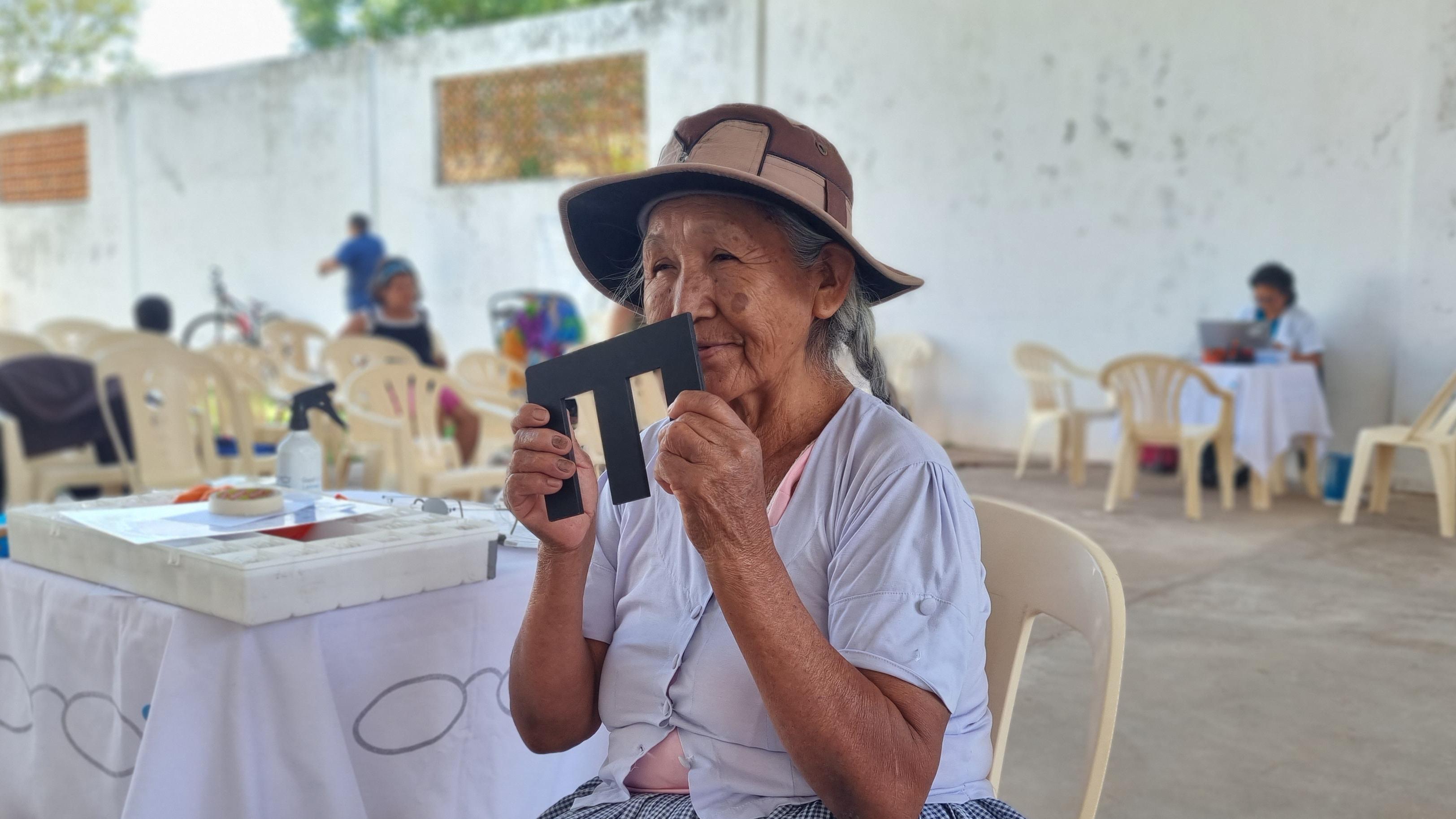

Bolivien
Lentes al instante (Bolivien) sorgt für gutes Sehen im ganzen Land: vom subtropischen Tiefland bis an die Grenzen zu Brasilien und Paraguay, über die Andentäler und auf dem Altiplano in 4.000 m Höhe bis zum Titicacasee.
ausgegebene Brillen
durchgeführte Sehtests
Mitarbeitende vor Ort
Programmstart
Lentes al Instante (Bolivien)
Mit großem persönlichen Einsatz hat Prof. Max Steiner das Programm der EinDollarBrille in Bolivien aufgebaut. Der gebürtige Schweizer ist seit langem in Bolivien zu Hause. Von Santa Cruz aus leitet er nicht nur das Programm in Bolivien, sondern stellt als Koordinator für Südamerika dort die Weichen für alle Programme der EinDollarBrille.
Für die Kolleginnen und Kollegen in Kolumbien und Peru waren Prof. Max Steiner und sein bolivianisches Team wichtige Sparringspartner und leisteten wertvolle Unterstützung beim Aufbau der Programme und bei der Einarbeitung neuer Mitarbeiterinnen und Mitarbeiter. Im Jahr 2022 verlagerte sich der Fokus des bolivianischen Teams nicht nur nach Norden in das Nachbarland Kolumbien, sondern auch nach Paraguay, das im Süden an Bolivien und Brasilien grenzt. Aus einer freundschaftlichen Zusammenarbeit mit der dortigen Retina Foundation entwickelte sich nach und nach eine feste Partnerschaft.
Mit mobilen Teams flexibel unterwegs
Seit 2021 sind drei mobile Teams für die EinDollarBrille in Bolivien im Einsatz. Mit Kleinbussen fahren sie oft über tausend Kilometer in die entlegensten Dörfer des Landes, um dort im Rahmen von Kampagnen die Menschen mit Brillen zu versorgen.
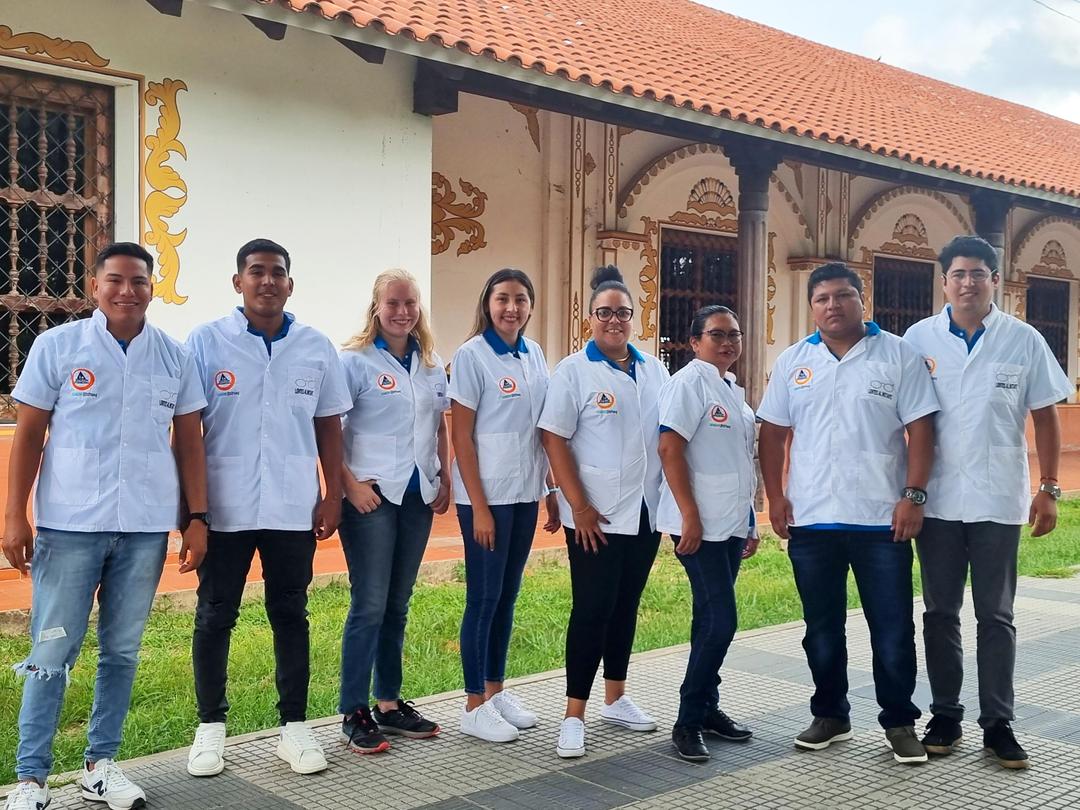
weltwärts-Kooperation
Eine große Hilfe für LAI (Bolivien) sind jedes Jahr rund 20 junge Frauen und Männer aus Deutschland, die über das weltwärts-Programm (über die Volunta gGmbH organisiert) der Bundesregierung nach Santa Cruz kommen. Ein Jahr lang packen sie vor Ort mit an, assistieren bei den Sehtests und helfen bei der Organisation der Augencamps. Gut geschult von ehrenamtlichen Mitarbeitern der EinDollarBrille in Deutschland, haben sie das nötige Wissen im Gepäck, um ihre bolivianischen Kolleginnen tatkräftig zu unterstützen.
Wenn du jetzt Lust bekommen hast, unser Programm in Bolivien zu unterstützen, dann lass dich hier inspirieren:
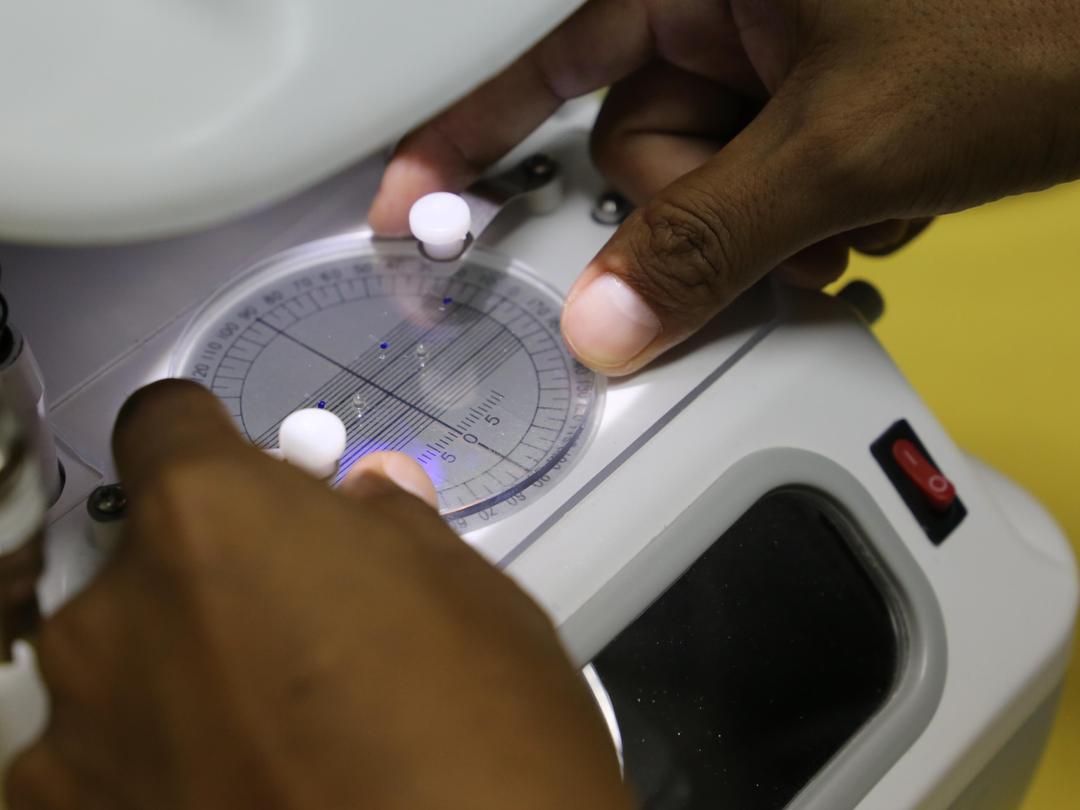
Präzision von Hand in der Schleifwerkstatt
Auch für das Astigmatismus-Programm in Bolivien werden helfende Hände gebraucht. Seit 2021 können wir in Bolivien neben sphärischen Brillengläsern auch entsprechende Linsen bei Hornhautverkrümmung anbieten. Diese werden in einer kleinen Schleiferei in der Zentrale in Santa Cruz hergestellt und gelangen per Nachtbus zu unseren Teams in allen Regionen Boliviens: vom subtropischen Tiefland bis an die Grenze zu Brasilien, in die Andentäler und auf das Altiplano auf über 4.000 Meter Höhe. Gerade dort, ab einer Höhe von 1.000 Metern, sind rund 20 Prozent der Menschen, die zu unseren Sehtests kommen, von einer Hornhautverkrümmung betroffen.
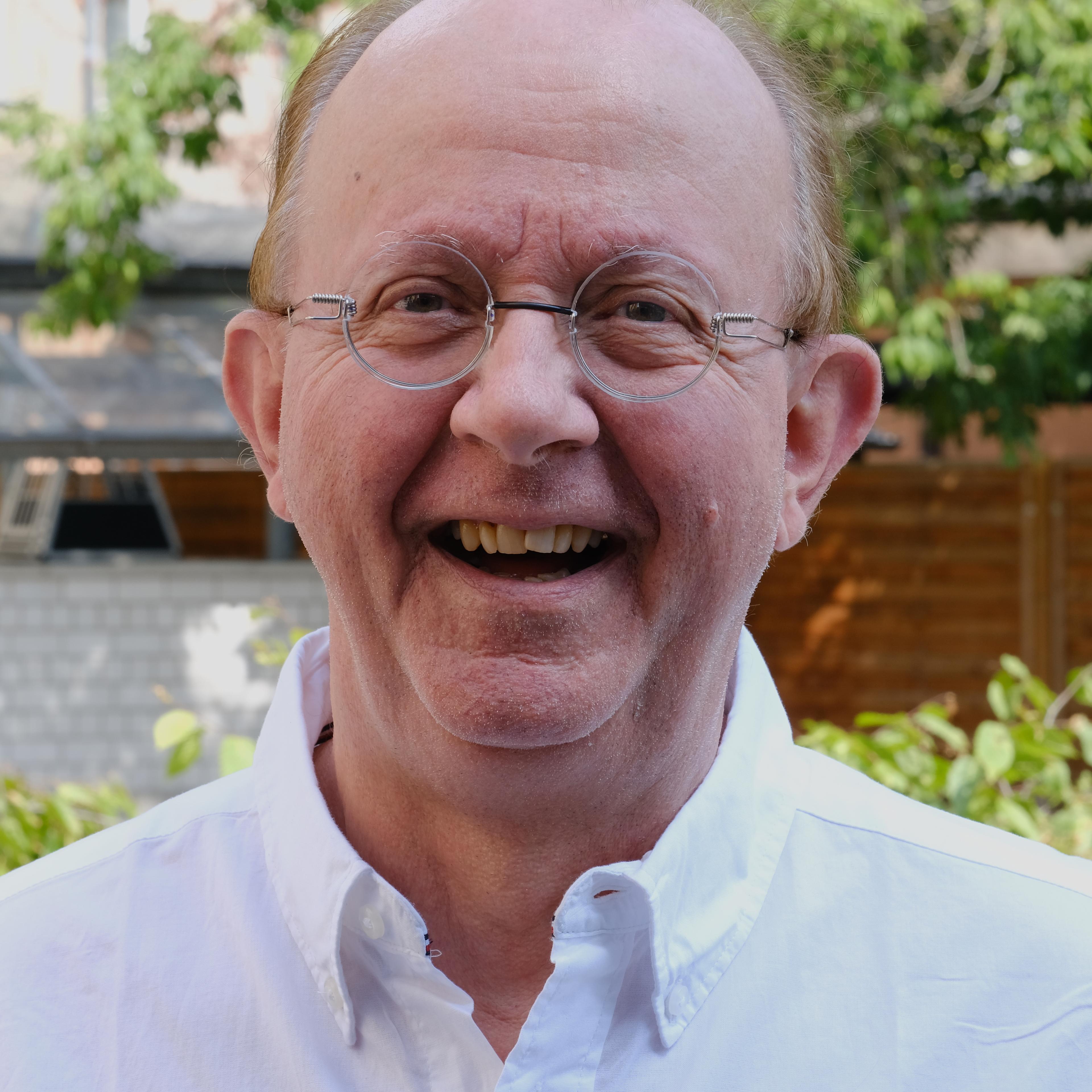
Der wichtigste Aspekt meiner Arbeit ist für mich das Helfen dürfen. Aber auch das Helfen müssen.
